Alice Rohrwacher wins the Silver Spike for ‘The Chimera’, a story of archaeological thieves and lost loves in the Tuscan countryside
The versatile Léa Seydoux (‘The Beast’) and Dave Turner (‘The Old Oak Tree’) win in the acting categories
The distanced and elliptical style in ‘Music’ earns Angela Schanelec the Ribera del Duero award for best direction, while the empathy of ‘How to Have Sex’ earns Molly Manning Walker the Pilar Miró award for best new direction
Veteran Marco Bellocchio wins the Miguel Delibes Award for best screenplay for his adaptation of a real event in ‘The Abduction’, co-written with Susanna Nicchiarelli
Ken Loach’s (‘The Old Oak Tree’) veteran, Marta Lallana’s (‘Muyeres’) delicacy and Asmae El Moudir’s (‘The Mother of All Lies’) wit seduce the audience
The Spanish film La imatge permanent, by debutant Laura Ferrés, has been proclaimed winner of the Golden Spike at the 68th Valladolid International Film Festival, an edition whose list of winners applauds a new lineup of female filmmakers: Alice Rohrwacher, Angela Schanelec, Molly Manning Walker, Vera Egito, Sara Summa, Nina Gantz, Alice Brygo, Sofia Exarchou, Reema Sengupta, Emma Axelroud Bernard and the also Spanish Marina Alberti have seen their work recognized in the main categories of the festival’s official awards.
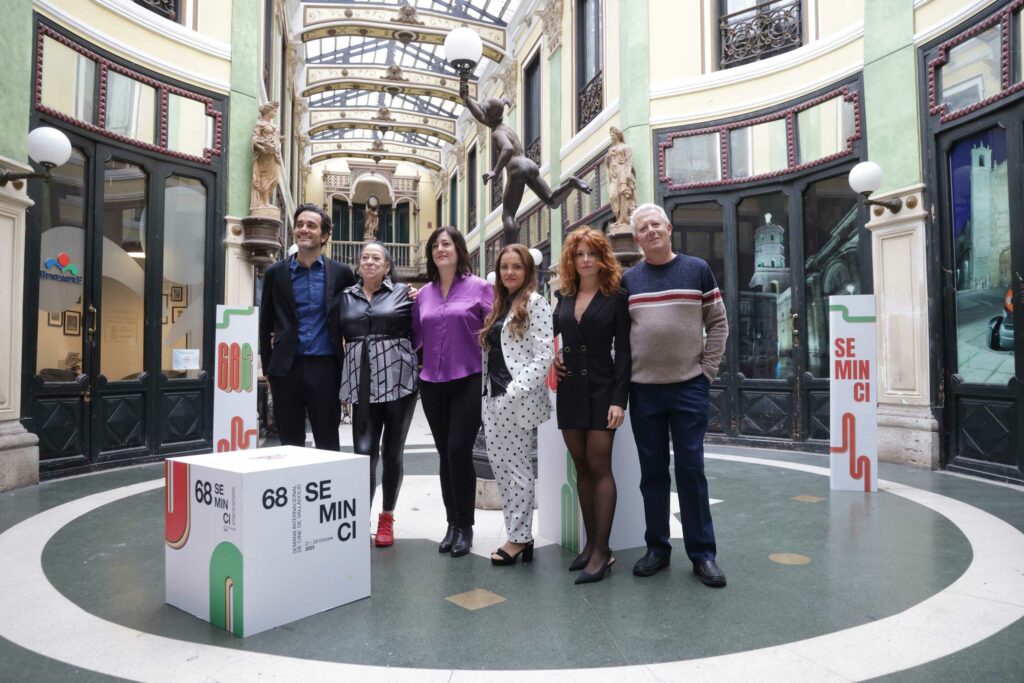
La imatge permanent represents the logical continuation in the career of Laura Ferrés, who won the Goya, the Gaudí and the Cannes Critics’ Week with her short film Los deshederados (2017), a work halfway between documentary and fiction about the bankruptcy of her father’s company premiered in the Official Section of the 62nd Seminci. La imatge permanent, whose inspiration stems from her maternal family, coming from Andalusia, unfolds as a story within a story. Carmen, a publicist in search of ‘real’ faces for a campaign, comes across Antonia, a woman who emigrated to Catalonia decades ago and with whom she strikes up a special relationship. Carlos Vermut and Ulises Porra also collaborate in the script of this sort of melodrama about the search for roots with non-professional actors and not without touches of absurd humor.
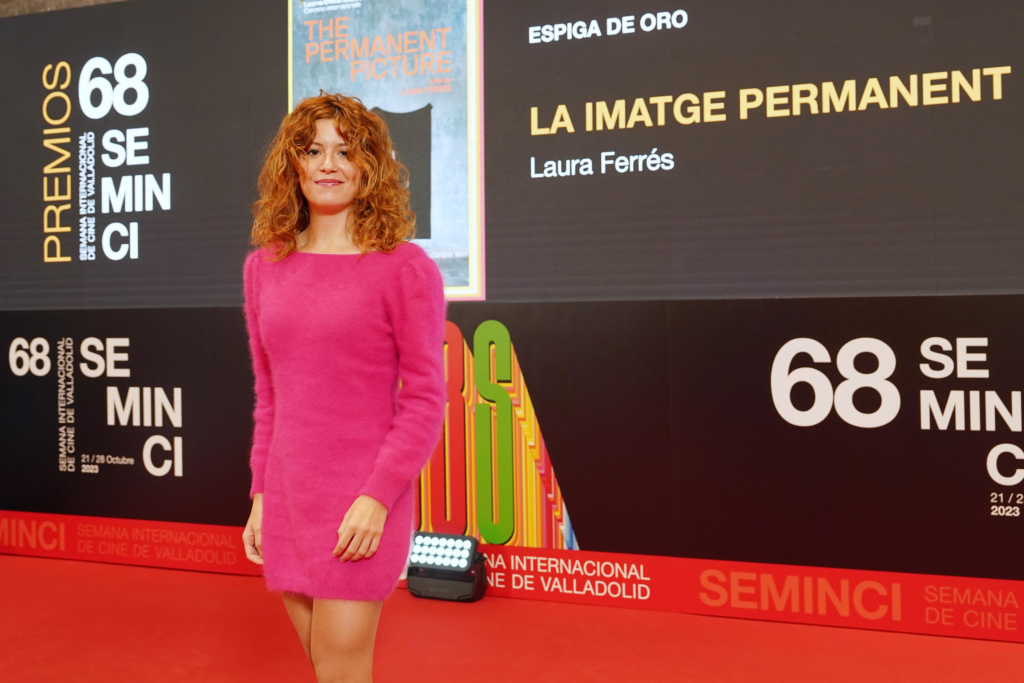
The award to Ferrés marks the second Golden Spike to a Spanish production in the festival’s 68-year history and the first to be won by a female filmmaker from the country. “As a jury, we have jointly chosen a film that is imbued with captivating themes, that is often deeply reflective, lyrical, and that remarkably captures the very essence of humanity,” the verdict states.
Laura Ferrés (El Prat de Llobregat, Barcelona, 1989), a graduate in Directing from the ESCAC, has been linked to the Valladolid event since her first steps as a filmmaker: her final project, the short film A perro flaco (2014), was selected in ‘The Night Of The Spanish Shorts’, while her next work, Los desheredados, participated in the Official Selection of the 62nd edition.
The International Jury, made up of Spanish director Meritxell Colell, British producer Mike Goodridge, Indian director Pan Nalin, director Caimán Cuadernos de Cine Jara Yáñez and Argentine director, producer and teacher Iván Granovsky, has awarded the Silver Spike to The Chimera, Alice Rohrwacher‘s fourth feature film. The Italian director returns to one of those portraits of deep Italy, in this case that of the 1980s, through a story of archeological thieves and lost loves with Isabella Rossellini in the cast. Rohrwacher draws on the constants of his filmography to offer a fable with a Fellinian spirit, a vitalist song that captures the beauty of the Tuscan countryside and that, according to the award’s certificate, “evokes magical feelings while pushing the limits of the artistic form of cinema, through a look that enchantingly perceives both life and death, human beings and also spirits, often dissolving the boundary between reality and fantasy”.
Best directors

The minimalist, distanced and elliptical style of Music has earned Angela Schanelec the Ribera del Duero award for best direction. The most veteran of all the award winners reformulates the myth of Oedipus with a particular and refined staging in which she superimposes times and places to tell the story of a young man who, after entering prison accused of murder, begins an incestuous relationship with one of the center’s employees. The jury, which also recognized the austere beauty of Ivan Marković‘s shots with the award for best cinematography, praised Schanelec’s “unique gaze and the way she approaches stories as a composer who plays at hiding the emotion inside her images to let it burst out in the most moving and beautiful way”.
From a veteran to a newcomer. British Molly Manning Walker, who arrived in Valladolid after her triumph in the Un Certain Regard section at Cannes, now wins the Pilar Miró Award for Best New Director for How to Have Sex, in which she talks about sexual consent through a group of British teenagers on vacation in Greece. The film has also won the Young Jury Prize in this section “for dealing with the difficult situation that many young women face”.
Best actress and actor, script and editing
An established actress and an up-and-coming actor have won in the acting category. Léa Seydoux won Best Actress for Bertrand Bonello‘s The Beast, a genre crossover in which she offers a fascinating variety of registers through three characters set in different eras, while Dave Turner, a fireman and hotelier by trade until Ken Loach cast him in supporting roles in I, Daniel Blake (2016) and Sorry We’re Sorry (2016), won Best Actress for The Beast, a fireman and hotelier by profession until Ken Loach cast him in supporting roles in I, Daniel Blake (2016) and Sorry We Missed You (2019), has been recognized with the Best Actor award for The Old Oak Tree, in which the incombustible portraitist of the British working class explores the seeds of racism.
Another veteran, Marco Bellocchio, has been recognized with the Miguel Delibes award for best screenplay, a new denunciation of power structures based on the true story of the kidnapping of a Jewish child by the papacy in the midst of the Italian reunification process.
The José Salcedo Award for Best Editing went to Germany’s Gesa Jäger for İlker Çatak’s Sala de profesores, whose choice of shots reflects the very conception of the film, a kaleidoscope of the tensions of today’s society that blossom and branch out from a petty theft in a school.
Fipresci and Critics’ awards
The International Critics’ Prize (Fipresci) has applauded the debut of Spanish director Víctor Iriarte in fiction with Sobre todo de noche, a film that deals with the trauma of stolen babies through an epistolary chronicle of two women played by Ana Torrent and Lola Dueñas and in which he freely mixes different resources from silent and classic cinema for a journey through the recent history of the country. Her proposal convinced the jury, which included the creator of StyleFeelFree (SFF magazine), Rosana G. Alonso; the editor of the international magazine FilmBuff, Rita Dutta; and the programmer and coordinator of film events, Nino Kovačić.

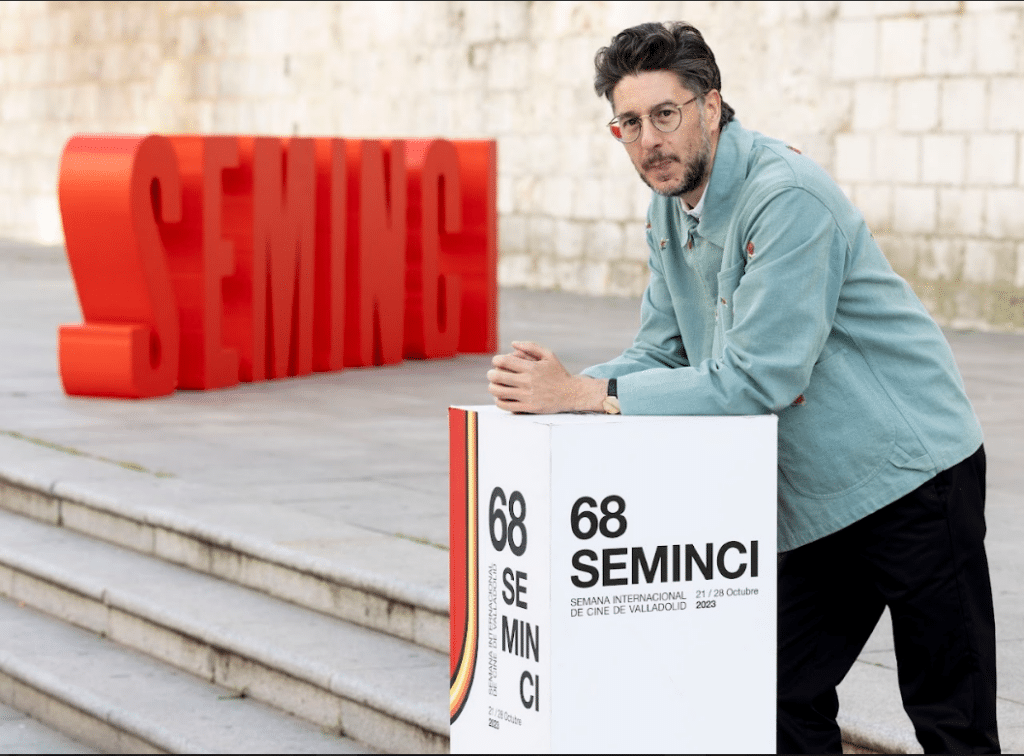
The Old Oak, by veteran Ken Loach, was the favorite of the audience, who decided with their votes and a score of 4.73 points out of five to award its prize, sponsored by El Norte de Castilla, to an old acquaintance of the festival. His latest feature film, in his own words, “delves into the seeds of racism” through the story of a group of refugees who settle in a crisis-stricken village in the north of England.
Short films
The Golden Spike for Short Film went to Wander to Wonder, a new and detailed stop motion piece signed by one of the great promises of European animation, Nina Gantz, which presents a fable about loss and the meaning of life through three puppets that star in an old television program.
Marina Alberti, granddaughter of the legendary poet Rafael Alberti and the writer María Teresa León, has won the Silver Spike for Aitana, a tribute to her mother, whose name gives the short film its title, and to a fragmented memory over which the threat of oblivion looms. The Short Film Candidate for EFA Valladolid 2024 is Le Mal des ardents, by French Alice Brygo, which reconstructs the shock of the fire that broke out in the Notre Dame cathedral through motionless dolls that contemplate the flames.
Meeting Point
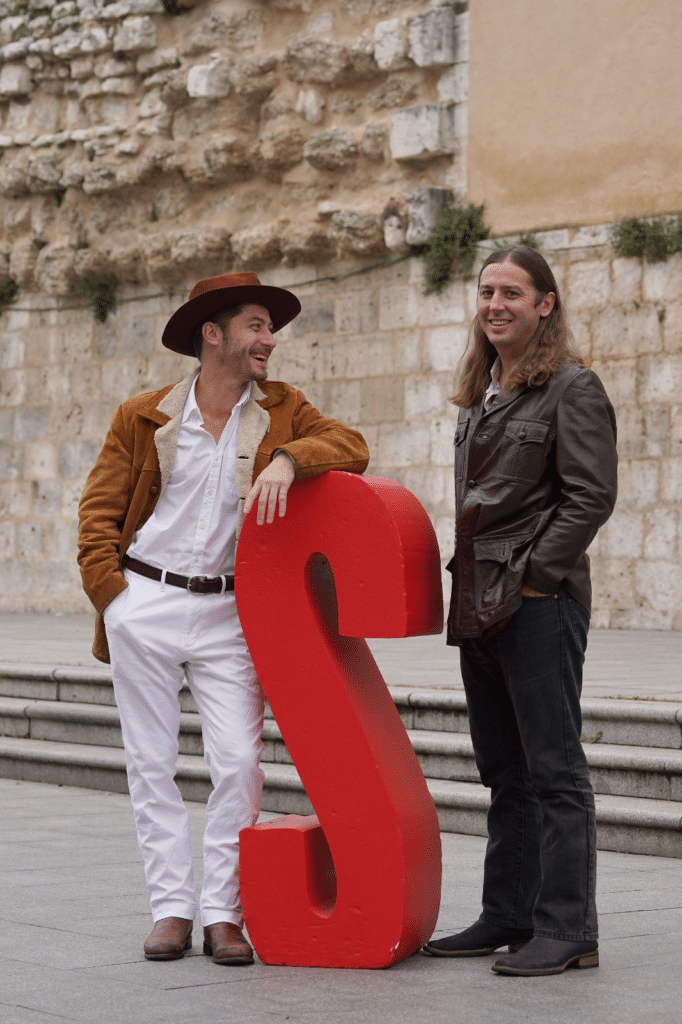
The main award at Punto de Encuentro went to Gasoline Rainbow, the odyssey of a group of young people who travel from Oregon to the Pacific coast, adapting the premise of Easy Rider to post-Trump America. Brothers Bill and Turner Ross, filmmakers with an outstanding and award-winning career as documentary filmmakers that has established them as indie referents, have debuted in fiction with a story about friendship and transition to adulthood that has won over the jury for “the courage and trust that its directors have placed in the young group cast and the authenticity that emerges from the portrait of an alternative and brighter American way of life”. The judges were Helen de Witt, curator of events related to independent and auteur cinema; the musician of the band Vetusta Morla Juan Pedro Martín ‘Pucho’; and the programmer at Indielisboa and director of Portugal Film, Ana Isabel Strindberg.
Arthur&Sara Summa‘s Diana, a road movie between Berlin and Paris that the French-German writer-director herself stars in with her real-life brother (Robin Summa), and her two-year-old son (Lupo), won a special award, while Sofia Exarchou‘s Animal, a chronicle of the day-to-day life of entertainers at a hotel in the Greek archipelago, received a special mention for “its incisive and humane portrayal of the brutal lives of artists in a hotel on a Greek archipelago”, a chronicle of the day-to-day life of entertainers at a hotel in the Greek archipelago, received a special mention for “its incisive and humane portrayal of the brutal lives of entertainers at a Greek resort, highlighting the emotional and physical demands.”
Nocturnal Burger, by Reema Maya, won the award for Best Foreign Short Film of the section, with a special mention for Coeurs Brisés Hôtel, by Emma Axelroud Bernard, while the winner of `The Night Of The Spanish Shorts’ was Meteoro, by Víctor Moreno.
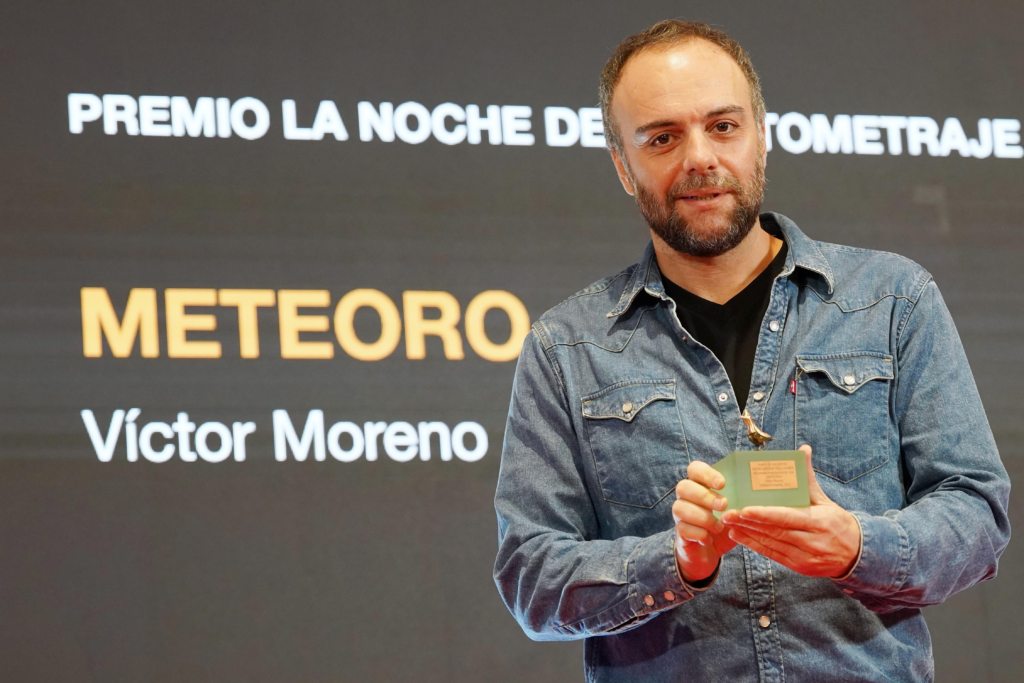

Among the fifteen titles competing in Punto de Encuentro, the Audience Award went to Muyeres, the delicate debut feature by Marta Lallana. The spectators have given a score of 4.53 to this non-fiction work that gives voice to Asturian women to fix the memory of their experiences.
The Young Jury of this section has awarded One Last Evening, by German Lukas Nathrath, “for realistically depicting the problems of youth”, “dealing with issues such as toxic relationships, mental health, job insecurity, grief” and “having managed to create a solid and well-structured story with few resources”. It also awarded a special mention to Hello Dankness, by Soda Jerk, for sketching a “social portrait of the last decade in the United States, in a way that is very close to the youth”.
Time of History
The first prize in the Time of History section, whose jury was formed by the co-founder of the production company Andergraun Films, Montse Triola; the artist, researcher and filmmaker Gala Hernández López; and the founder of Curtas Metragens de Vila do Conde and Porto/Post/Doc Film and Media Festival, Dario Oliveira, went to Between Revolutions. With this film built from archival footage, Romanian filmmaker Vlad Petri tells the story of two women, Zahra and Maria, through whose testimonies, based on classified Securitate documents, the meanings of the revolution that overthrew the Shah in Iran and the one that did the same to Ceaușescu in Romania converge. It thus recognizes “an intimate and poetic story that, despite its historical dimension, ends up resonating in each of us,” the minutes state.
Retratos fantasma (Ghost Portraits), a journey through the cinematic memory and reflection on themes such as class struggle, urban planning and gentrification through the history of Recife’s movie theaters in Brazil, won Kleber Mendonça Filho the second prize in the section for “combining collective and personal memory in a cinematographic construction that recalls and brings back the pleasure of a certain popular cinema of the last century”, while the DOC. España award, which this year, for the first time, had a transversal sense and covered different sections, went to Zinzindurrunkarratz, by Oskar Alegria, which, “gathering the fragile memory of a rural Spain currently under threat, tells us about the importance of cinema as an ethnographic instrument”.
Ours, by Morgane Frund, a meta-cinematographic reflection on the violence of certain gazes and voyeurism, was chosen as the best short film in this section.
With 4.6 points out of five, the Tiempo de Historia Audience Award went to Asmae El Moudir’s The Mother of All Lies, a witty and personal look at the 1981 Casablanca riots with artistic intent.
Alchemies
Femme, the first feature film by Sam H. Freeman and Ng Choon Ping, has won the Recoletas Award in the new Alchemies section, presented by the CICAE (International Confederation of Art Cinemas) jury, made up of Chilean actor, screenwriter, director and programmer Martín Castillo; Céline Pain, director of the Ligue de l’Enseignement, the cultural cluster that manages the Génériques network of independent cinemas; and author, director and producer Pedro Barbadillo. “Even if we believe we live in a better and freer world, this film reminds us that forgetting, even for a second, the rights conquered, leads us to run the risk of losing those advances in the blink of an eye,” the argumentation of the award underlines.
Vera Egito‘s A Batalha da Rua Maria Antônia has won this year’s Fundos Award, decided by director and producer Néstor López, Fundos trustee Leandro J. Martín, actress Marta Ruiz de Viñaspre and the vice-rector of Communication, Culture and Sports of the University of Valladolid, Carmen Vaquero. This Brazilian production captures the Latin American effervescence after the French May in a film full of sweat, ideals, desire and movement that follows the steps of a group of students who participate in the protests that took place in 1968 between the students of the University of São Paulo, against the military dictatorship, and those of Mackenzie, in favor of it.
Other awards
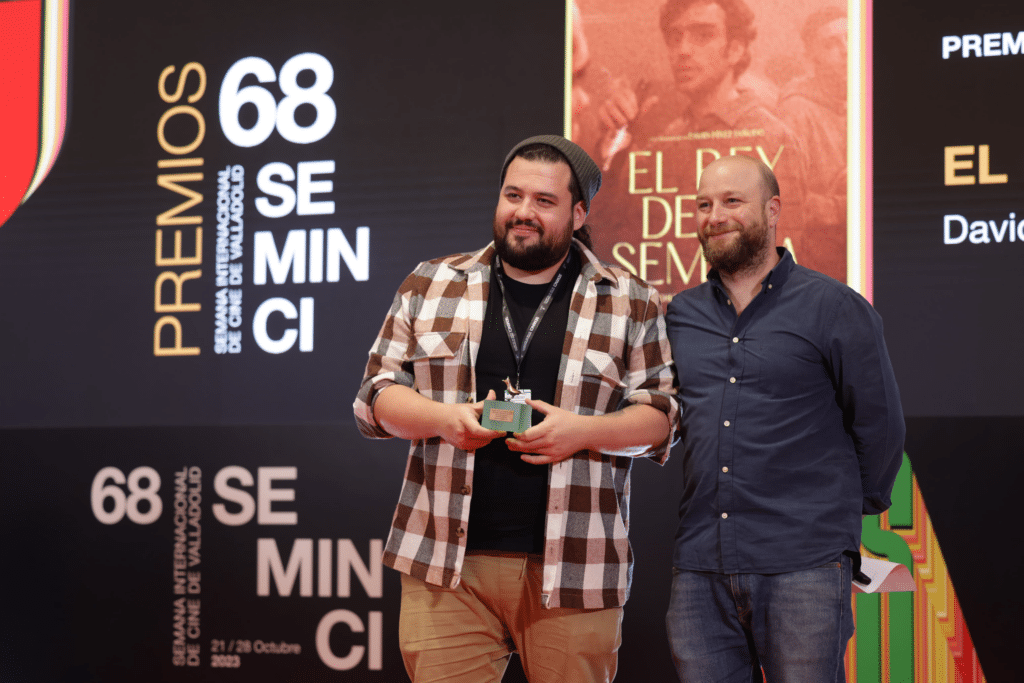
El rey de la semana, by David Pérez Sañudo, was the best in the Short films from Castile & Leon section in the opinion of the jury formed by documentary and short film director and producer Juan Carrascal-Ynigo, playwright, actress and short film director Nüll García, and filmmaker, photographer and video artist Víctor Hugo Martín Caballero.
The Rainbow Spike of the 68th Seminci, awarded by Oliva Cachafeiro Bernal, Alejandro Cano Sanz and David Lagunilla Infante, went to All of Us Strangers, by Andrew Haigh, “for reflecting a reality that reconciles the present with the past in a natural way, creating a work that shows an evolution towards a normal integration of the LGBTI community with the rest of society. In addition, a special mention was given to “the courage, freshness and originality” of the Spanish film On the Go, by Julia de Castro and María Gisèle Royo.
The Green Spike of the 68th edition has been awarded to the feature film Muyeres, debut film by Marta Lallana that explores the beauty of the Asturian mountain with a sensitivity full of poetry, with the composer and producer Raül Refree as the protagonist and author of the soundtrack. In addition, the short film Trenc D’Alba, by Anna Llargués, received a special mention from the jury formed by Ruth de Frutos, professor of Journalism at the University of Malaga, Greenpeace collaborator and producer Catalina Jiménez and member of Ecologistas en Acción Luis Rico García-Amado. La contadora de películas, by Lone Scherfig, precisely the film chosen to open the 68th Seminci on October 21, has deserved the Seminci Youth Award with its emotional tribute to cinema and the magic of sharing stories told on the big screen.
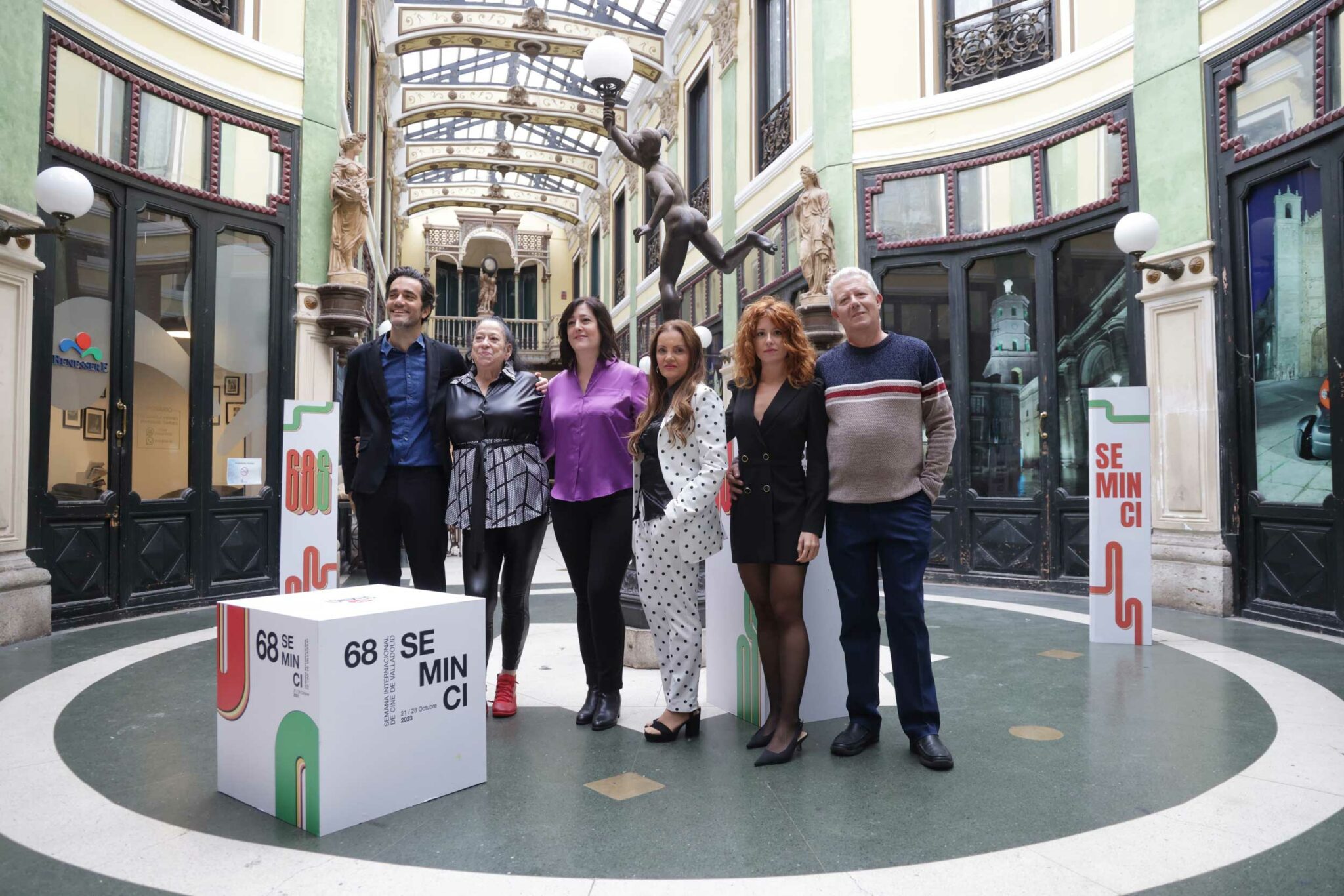


























![Logo Foro Cultural de Austria Madrid[1]](https://www.seminci.com/wp-content/uploads/2024/09/Logo-Foro-Cultural-de-Austria-Madrid1-300x76.jpg)








